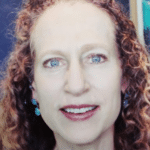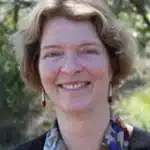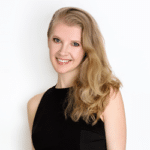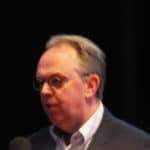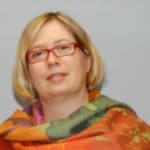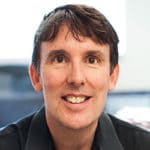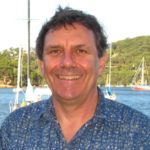Justine Cassell
Professor, School of Computer Science : Justine Cassell is SCS Dean’s Professor in the School of Computer Science at Carnegie Mellon University (CMU). She is currently on leave from CMU to hold the founding international chair at PRAIRIE Paris Institute on Interdisciplinary Research in AI, and to hold the associated position of researcher at INRIA Paris. In January 2021, Cassell was named a member of the 21 person French governmental committee Conseil National du Numérique (CNNUM) – the Council on the Future of Digital in France.
Katherine Demuth
Katherine Demuth is Distinguished Professor of Linguistics at Macquarie University (Australia), where she is also Director of the Centre for Language Sciences (CLaS) and founding Director of the Child Language Lab. Her research centers on language acquisition, including both perception and production, with particular interest in how children develop phonological, morphological, and syntactic representations. She spans both typically developing and language-impaired populations and often uses cross-linguistic approaches to understand universal and language-specific processes
Evelina Fedorenko
Evelina (Ev) Fedorenko is Associate Professor of Brain and Cognitive Sciences at MIT and Investigator at the McGovern Institute for Brain Research. She holds a BA (Psychology & Linguistics) from Harvard (2002) and a PhD in Brain & Cognitive Sciences from MIT (2007). Her research focuses on how the human brain represents and processes language: she investigates the internal architecture of the language network, its relation to other cognitive systems, and how linguistic processes are instantiated in neural circuits in both typical and atypical brains.
Anne-Lise Giraud
Anne-Lise Giraud est professeure de neurosciences et directrice de l’Institut de l’Audition (Institut Pasteur/Inserm). Spécialiste des neurosciences auditives et du langage, elle étudie les bases neuronales de la parole, le rôle des oscillations corticales dans le traitement du langage, ainsi que leurs altérations dans des troubles tels que la dyslexie, l’autisme ou l’aphasie. Ses travaux associent imagerie cérébrale, neuro-ingénierie et interfaces cerveau-ordinateur pour mieux comprendre et restaurer les fonctions de communication humaine.
Usha Goswami
Usha Goswami Professor of Cognitive Developmental Neuroscience at the University of Cambridge, and Director of the Centre for Neuroscience in Education. She is also a Fellow of St John’s College, Cambridge. Her research lies at the intersection of neuroscience, developmental psychology, and education, with a primary focus on reading acquisition, dyslexia, and the neural bases of language and rhythm processing.
Peter Hagoort
Professor Peter Hagoort is director of the Max Planck Institute for Psycholinguistics (since November 2006), and the founding director of the Donders Institute, Centre for Cognitive Neuroimaging (DCCN, 1999), a cognitive neuroscience research centre at the Radboud University Nijmegen. In addition, he is professor in cognitive neuroscience at the Radboud University Nijmegen. His own research interests relate to the domain of the human language faculty and how it is instantiated in the brain. In his research he applies neuroimaging techniques such as ERP, MEG, PET and fMRI to investigate the language system and its impairments as in aphasia, dyslexia and autism.
Arthur Jacobs
Arthur M. Jacobs Professor of Experimental and Neurocognitive Psychology at Freie Universität Berlin and founding Director of the Dahlem Institute for Neuroimaging of Emotion (D.I.N.E.). His research interests include the neurobiological bases of language, aesthetic and affective processes in literature, and how poetic / emotional reading engages the brain.
Sonja Kotz
Dr. Prof. Sonja Kotz holds a chair in Neuropsychology and Translational Cognitive Neuroscience at the Faculty of Psychology and Neuroscience (FPN), Department of Neuropsychology and Psychopharmacology (NP&PP) at Maastricht University, the Netherlands. Her research topics include multimodal processing and (re-)learning, with a particular focus on temporal, rhythmic, and emotional stimulus properties and contexts, or the search for neuromodulatory therapies in persons with Parkinson’s disease, subcortical stroke, tinnitus, and first incidence psychosis.
Sophie Scott
Professor Sophie Scott CBE is Director of the Institute for Cognitive Neuroscience at University College London. She studies the neurobiology of human vocal communication, from speech and sound to social interactions and non verbal emotional expressions. She gave the Royal Institution Christmas lectures in 2017, and was awarded the Michael Faraday prize by the Royal Society in 2021. She has published over 140 scientific papers, and has an H index of 75.
Ted Gibson
Professor of Cognitive Science at the MIT Research in the Gibson Lab (“TedLab”) is aimed at investigating (1) why human languages look the way they do; (2) the relationship between culture and cognition, including language; and, most generally, (3) how people learn, represent and process language. We use a variety of methods, including behavioral experiments (e.g., reading and listening studies, many simple methods in working with remote populations, dual-task experiments, individual differences studies), statistical modeling and corpus analyses. In collaboration with other labs we also use functional MRI, event-related potentials (ERPs) and eye-tracking.
Mark Johnson
Professor of Language Sciences : Mark Johnson is a Professor of Language Science (CORE) in the Department of Computing at Macquarie University. He is also the Chief AI Scientist, Oracle Digital Assistant at Oracle Corporation, where he develops chatbots and digital assistants. The Oracle Digital Assistant division develops novel deep learning models to power the next generation of Conversational AI using semantic parsing. Mark Johnson has worked on a wide range of topics in computational linguistics, but his main area of research is natural language understanding, especially syntactic parsing and semantic analysis, and their applications to text and speech processing.
Ken Pugh
Director of Research, Senior Scientist, Haskins Laboratories Professor, Dept. of Psychology, University of Connecticut Associate Professor, Dept. of Linguistics, Yale University Associate Professor, Dept. of Diagnostic Radiology, Yale University School of Medicine Director, Yale Reading Center Co-leader, Yale-Haskins Teagle Foundation Collegium on Student Learning

